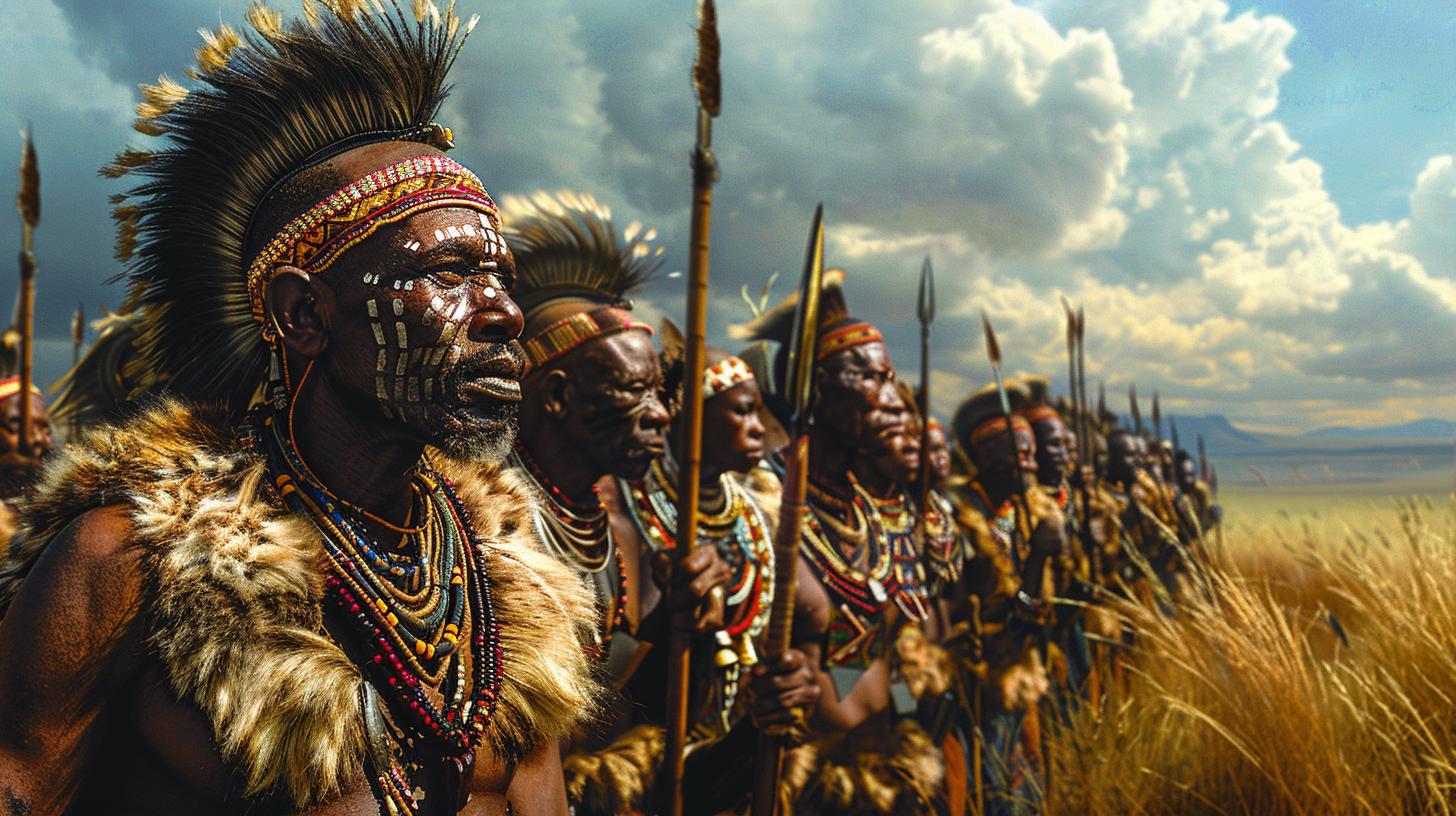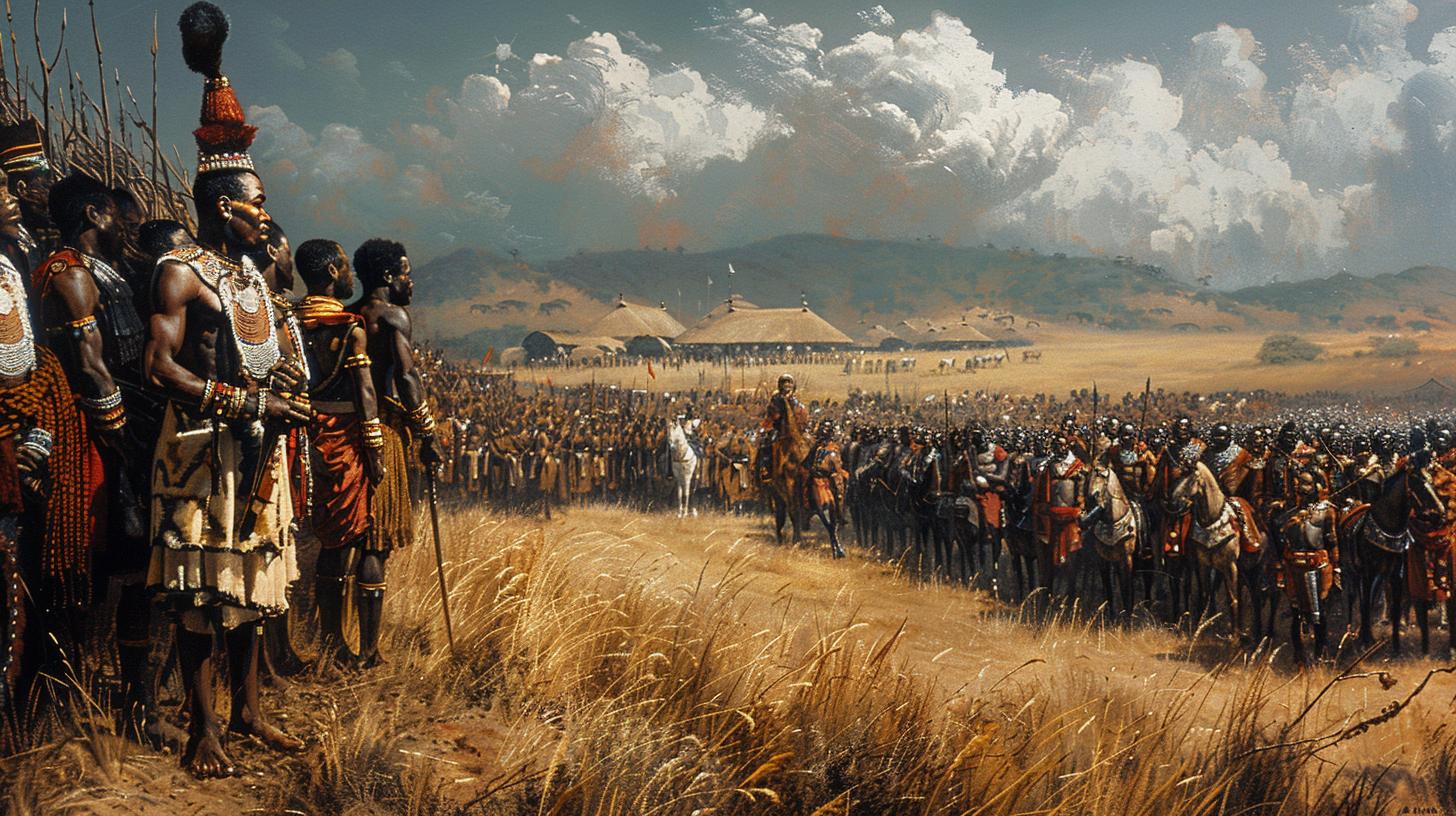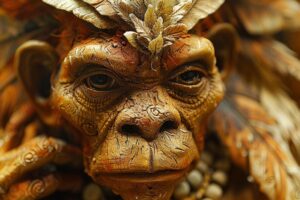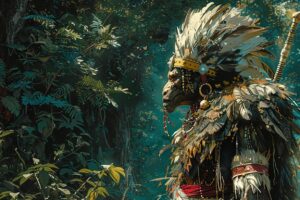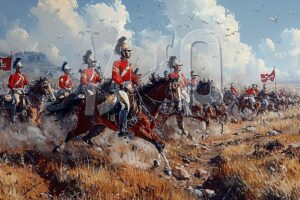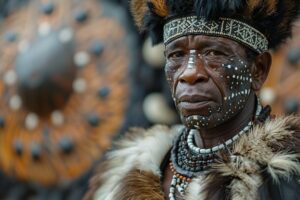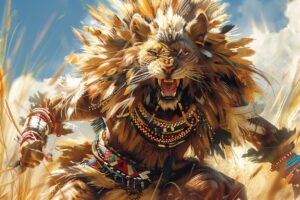History Of The Zulu People And Its Kingdom: A Fascinating Narrative
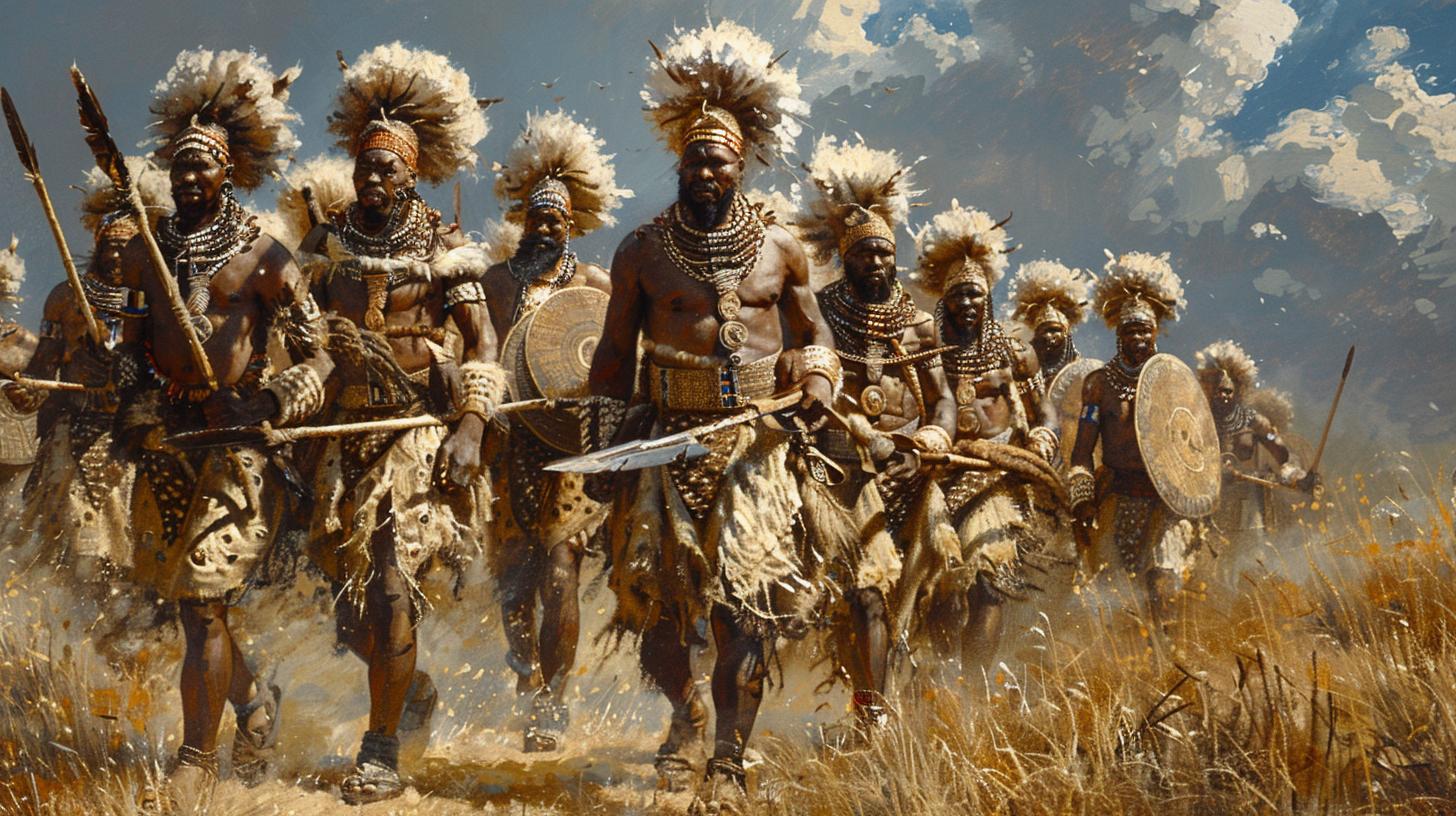
The history of the Zulu people and their kingdom dates back centuries. Originating from Bantu migrations, the Zulu clans united under Shaka in the 19th century to form a powerful empire.
Despite European colonization and subsequent changes, Zulu culture and traditions have persevered, contributing to their vibrant contemporary society.
Origins of the Zulu People
The origins of the Zulu people can be traced back to the migration of Bantu groups in the 11th century. These early settlers, who eventually became the ancestors of the Zulu, settled in what is now South Africa, where they developed into diverse clans before uniting under Shaka’s leadership in the 19th century to form the powerful Zulu Empire.
Migration of Bantu Groups
- The migration of Bantu groups from East Africa brought the ancestors of the Zulu people to the region that would become their homeland.
- These early migrants settled in the area and established themselves as distinct clans with unique cultural practices and traditions.
- Over time, these clans interacted with each other, forming alliances and relationships that would shape the future development of the Zulu people.
Development of Zulu Clans
- Within the diverse landscape of South Africa, the Zulu clans emerged with their own customs and ways of life, influenced by their surroundings and interactions with neighboring groups.
- Each clan had its own leaders, traditions, and social structures, contributing to the rich tapestry of Zulu culture that would evolve over the centuries.
- As these clans grew and flourished, they laid the foundation for the eventual unification under Shaka and the establishment of the powerful Zulu Empire.
Rise of Shaka and the Zulu Empire
The rise of Shaka and the Zulu Empire marked a significant chapter in the history of the Zulu people, shaping their trajectory for generations to come.
Shaka’s leadership and military prowess transformed the scattered Zulu clans into a formidable force that would leave a lasting impact on the region.
Leadership of Shaka
Shaka, a visionary leader known for his strategic brilliance and charismatic presence, emerged as a unifying figure among the Zulu clans. His innovative leadership style and ability to inspire loyalty among his followers set the stage for the consolidation of power and influence under his rule.
Military Reforms and Expansion
Under Shaka’s command, the Zulu military underwent radical reforms that revolutionized traditional warfare tactics. The introduction of the iconic stabbing spear, or “assegai,” and disciplined battle formations known as the “buffalo horns” and “chest,” gave the Zulu army a tactical advantage over their adversaries.
- Intense Training Regimens: Shaka implemented rigorous training regimens that instilled discipline and cohesion within the ranks of the Zulu warriors. This focus on physical fitness and combat readiness was instrumental in the Zulu army’s success on the battlefield.
- Strategic Conquests: Through a series of strategic conquests and military campaigns, Shaka expanded the borders of the Zulu Empire, incorporating neighboring territories and tribes into his growing domain.
His swift and decisive actions cemented the Zulu’s reputation as a formidable force to be reckoned with.
- Social Reforms: In addition to his military innovations, Shaka introduced social reforms that aimed to strengthen the cohesion of the Zulu society.
His centralized authority and emphasis on loyalty to the Zulu king fostered a sense of unity and identity among his subjects.
- Legacy of Expansion: The legacy of Shaka’s military expansion endured long after his reign, shaping the political landscape of the region and influencing the trajectory of the Zulu people.
His legacy as a military genius and visionary leader continues to be celebrated in Zulu folklore and history.
Post-Shaka Era and Successors
The period following Shaka’s reign marked a transition in Zulu leadership and governance. The rule of Dingane and Mpande brought changes to the empire, influencing its trajectory and interactions with external forces.
Rule of Dingane and Mpande
Dingane and Mpande, as successors to Shaka, faced the challenge of maintaining stability and unity within the Zulu empire. Dingane’s reign was marked by internal conflicts and power struggles among clan leaders, while Mpande implemented more conciliatory policies to ensure a cohesive leadership structure.
Internal Conflicts
- Dingane’s rule was marred by internal conflicts, as rival factions vied for power and influence within the empire.
- Clan leaders sought to assert their authority, leading to tensions and unrest that threatened the unity of the Zulu kingdom.
Conciliatory Policies of Mpande
- Recognizing the need for stability, Mpande implemented conciliatory policies aimed at appeasing rival factions and promoting cooperation among clan leaders.
- His approach sought to balance power dynamics within the empire, fostering a sense of inclusivity and shared governance.
Impact of European Colonization
The arrival of European colonizers in the 19th century brought significant changes to the Zulu kingdom.
The interactions with colonial powers and the imposition of foreign rule reshaped the political landscape and challenged the autonomy of the Zulu people.
Colonial Encroachment
- European colonization encroached upon Zulu territories, leading to territorial disputes and conflicts over land ownership.
- The imposition of colonial authority undermined traditional Zulu governance structures, disrupting established power dynamics.
Resistance and Adaptation
- Faced with the challenges of colonization, the Zulu people engaged in resistance efforts to protect their land and cultural heritage.
- Adaptation to changing circumstances became essential as the Zulu kingdom navigated the complexities of colonial rule and the erosion of its autonomy.
Zulu Culture and Traditions
The Zulu culture is deeply rooted in a patriarchal society with a strong clan system that plays a central role in their social structure.
Patriarchy is evident in various aspects of Zulu life, from inheritance patterns to leadership roles within the community.
Patriarchal Society and Clan System
- Zulu society is organized around clans, with each clan tracing its lineage back to a common ancestor. Clan identity is crucial in determining one’s place in the community and governing social interactions.
- The clan system also influences marriage customs, as it is common for individuals to marry within their own clan to preserve purity of bloodline and ancestral connections.
- Leadership within Zulu clans is typically passed down through male lineage, with elder male members holding positions of authority and decision-making power.
Religious Beliefs and Practices
Zulu religious beliefs are deeply rooted in ancestral worship and a complex cosmology that includes a supreme god, intermediary spirits, and traditional healers known as sangomas.
These beliefs are intertwined with daily life and ceremonial practices.
- Ancestral spirits are revered and consulted for guidance and protection, with rituals and offerings performed to honor them and seek their favor.
- Sangomas play a crucial role in Zulu society, acting as spiritual healers, diviners, and mediators between the human and spiritual realms.
Their practices are based on a deep knowledge of herbal medicine and spiritual communication.
- Zulu religious ceremonies, such as initiations and ancestral celebrations, are an integral part of their cultural identity and are marked by drumming, dancing, and communal feasting.
Contemporary Zulu Society
Contemporary Zulu society has undergone significant changes in recent years, influenced by migration and economic shifts.
This has led to a redefinition of traditional roles and practices, with Zulu people adapting to new realities while holding on to their rich cultural heritage.
Migration and Economic Changes
Migratory patterns among the Zulu people have been shaped by economic opportunities and urbanization, leading to a dispersal of Zulu communities across South Africa. This movement has sparked changes in lifestyle, occupation, and social structures among the Zulu populace.
Evolution of Zulu Identity
The evolution of Zulu identity reflects a dynamic interplay between tradition and modernity. As Zulu individuals navigate contemporary society, they negotiate their cultural roots with the demands of a rapidly changing world.
This evolving identity encompasses aspects of language, dress, food, and social customs, illustrating the resilience and adaptability of the Zulu people.
Preservation of Zulu Heritage
The preservation of Zulu heritage is crucial in maintaining the rich cultural identity of the Zulu people. Through centuries of change and challenges, the Zulu community has shown resilience and determination in safeguarding their traditions and customs.
Adaptation and Resistance
Adaptation is key to the survival of any culture, and the Zulu people have demonstrated their ability to adapt to new circumstances while preserving their core values. Despite external pressures and influences, the Zulu community has remained steadfast in their commitment to upholding their heritage.
Integration of Modern Practices
While embracing modern practices and technologies, the Zulu people have found ways to blend traditional customs with contemporary lifestyles. This integration reflects the Zulu society’s ability to evolve while staying true to their cultural roots.
Challenges and Resilience
Throughout history, the Zulu community has faced numerous challenges that threatened their heritage. However, their resilience and unity have allowed them to overcome adversity and continue the legacy of their ancestors.
Role of Zulu Culture in Modern Society
The influence of Zulu culture extends beyond traditional rituals and practices, shaping various aspects of modern society in South Africa. From art and music to social norms and governance, the legacy of the Zulu people continues to inspire and enrich contemporary life.
Artistic Expression
Zulu artistic expression, including dance, music, and visual arts, plays a significant role in modern South African culture. The creative talents of the Zulu community have influenced diverse art forms, contributing to the vibrant cultural landscape of the region.
Community Values and Leadership
Zulu cultural values emphasize community cohesion, respect for elders, and collective decision-making. These principles of unity and solidarity have transcended generations, guiding modern leaders in their efforts to foster harmony and progress within the Zulu society.
.

